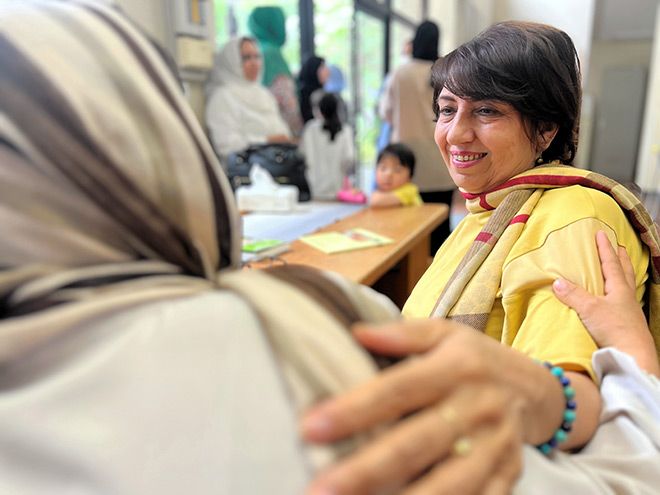CHIBA—Sedeka Eto greets women in hijab head covers with a smile and a tight hug as they arrive in a classroom here.
Since 2023, Eto, a 67-year-old originally from Afghanistan, has been operating a free Japanese language class in Chiba city for Afghan women living in Japan.
About 120 have signed up for the weekly class, and between 20 and 60 attend each session.
The Islamist group Taliban, which returned to power in Afghanistan in August 2021, has banned girls from secondary and higher education and forbidden women from working.
A growing number of Afghans have fled to Japan, where more than 6,000 of them currently live.
However, many Afghan women in Japan are not allowed to go out unaccompanied by a man. Some have no choice but to stay at home.
“I want to bring those people just one step out of their houses,” Eto said.
After receiving an offer of a classroom for use and enlisting the help of female volunteer teachers, she opened the class.
Eto grew up in a well-off family in Kabul and graduated from a national university. Now a widow, she met her Japanese husband, who was studying in Afghanistan, and moved to Japan in 1983.
Anxious about her conflict-torn homeland, Eto watched the news but couldn’t understand what was said in Japanese.
After her daughter was born, Eto could not read the notebook of correspondence between the kindergarten teacher and the parents.
“It is so vexing to find out that you are of no help to your own child,” Eto said.
She attended a Japanese language school and became so proficient that she served as a court interpreter.
Eto set up a nonprofit organization in 2003 to send backup resources to her home country. She has also been operating a trading company.
Some women who have taken Eto’s Japanese class have landed part-time jobs. Others have become proficient enough in the language to deal with formalities at public offices.
“Elderly people are seen pushing handcarts to go shopping in Japan,” Eto said. “Looking at diverse people and talking to them can provide hope for life. Streets and neighborhoods are a university campus for you to study on. Why don’t you just step out and get in there?”


AloJapan.com